Words Matter: Safe and Fair Cambodia Launches Media-friendly Glossary on Migration
Date:
Author: Jocelyn Pederick
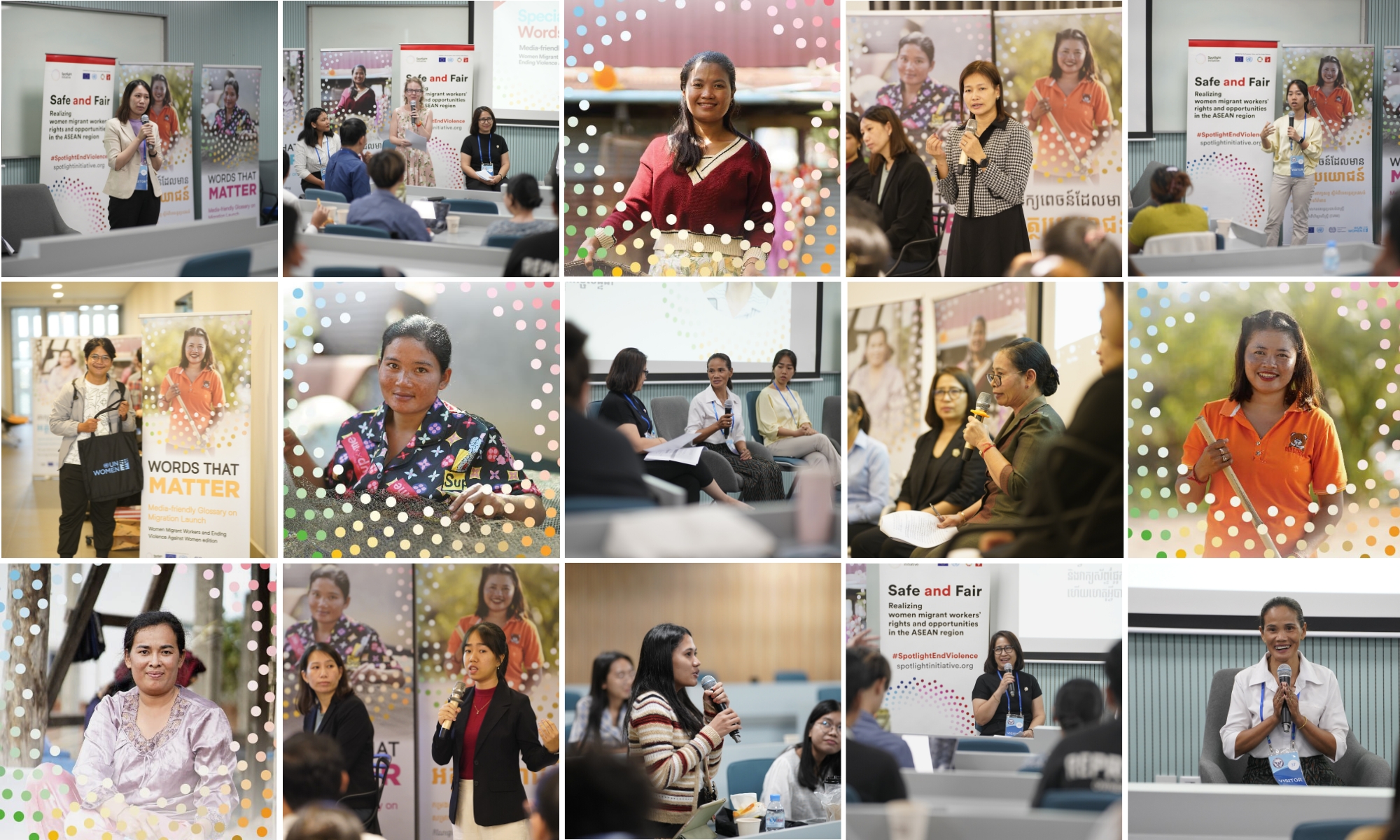
Words matter. The language we use has the power to shape ideas, reinforce stereotypes and harmful social norms that lead to discrimination. For women migrant workers, the language used to define them, can lead to discrimination, jeopardise job security, and heighten vulnerability to violence and exploitation.
The European Union and United Nations Safe and Fair programme has been working to change that by developing a media-friendly glossary to encourage the use of non-discriminatory and gender-sensitive language for the reporting of news and stories about women migrant workers.
As part of the 16 Days of Activism against Gender-based Violence, Safe and Fair in Cambodia hosted two events to launch the Khmer language version of the Media-friendly Glossary on Migration. This edition focuses specifically on Women Migrant Workers and Ending Violence against Women (EVAW).
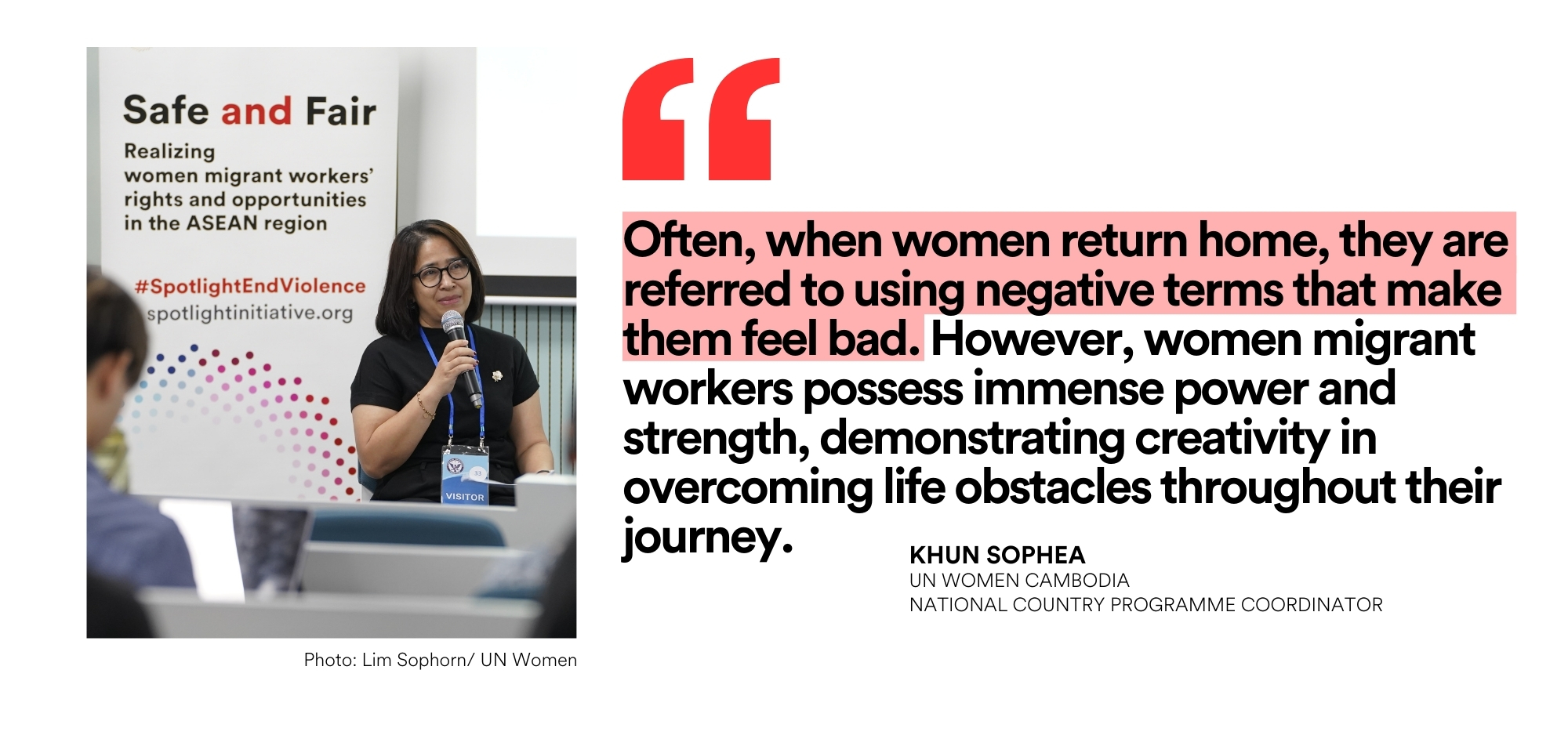
Khun Sophea of UN Women Cambodia explains that the Cambodian media landscape has often used terminology to describe Cambodian women migrant workers which has failed to recognise and protect their strength and contribution. Khun Sophea notes, "Frequently, negative language surrounds migrant women workers, with labels like 'illegal.' Often, when women return home, they are referred to using negative terms that make them feel bad. However, women migrant workers possess immense power and strength, demonstrating creativity in overcoming life obstacles throughout their journey."
Attended by 50 professionals, including journalists and researchers, the official launch of the Khmer language version of the Media-friendly Glossary on Migration, featured a panel of speakers from government, media outlets, and gender-experts.
“After this event, I intend to use this glossary in my writing, especially given my focus on topics related to violence against women and children. I've learned about the significance of word choices, for example, using the word “survivor” instead of “victim.” This shift helps prevent additional burden on individuals who have experienced violence,” said Mao Sreypich, a journalist with KiriPost in Cambodia.
At a second event, held in partnership with the American University of Phnom Penh (AUPP), 50 media and international studies students learned about the importance of ethical reporting and gender-sensitive language.
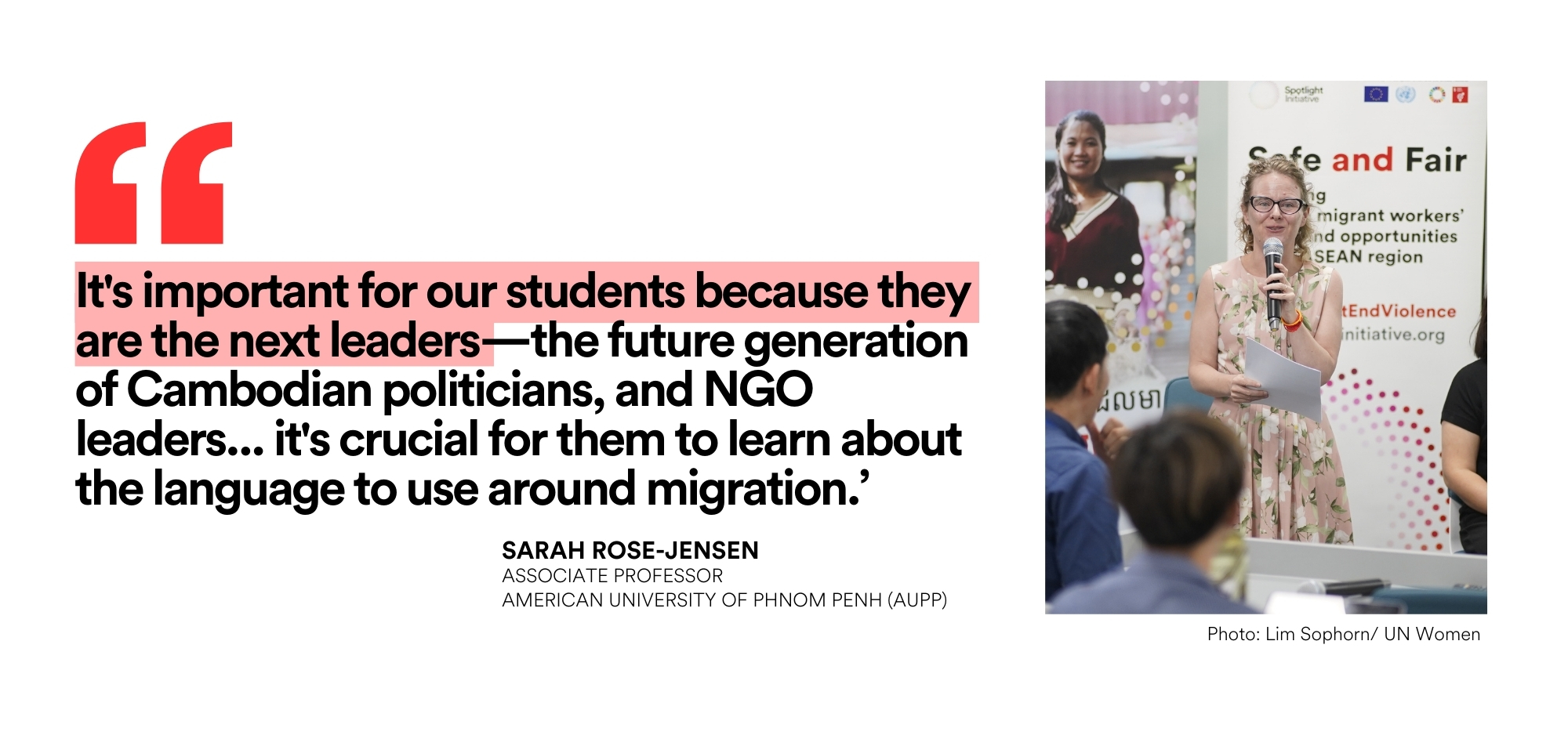
Sarah-Rose Jensen, Associate Professor at AUPP, saw the event as critical for her students, stating, “It's important for our students because they are the next leaders—the future generation of Cambodian politicians, NGO leaders, and individuals running agencies like ILO. Many of them are already journalists, writers, and vloggers on social media. Hence, it's crucial for them to learn about migration and the language to use around migration.”
Speakers at both events included journalists, bloggers, officials from the Ministry of Women's Affairs, and representatives from UN Women. A highlight of both occasions was a conversation with Long Leap, a former women migrant worker and Peer Leader, who shared her personal experiences of discrimination. In her words, “Some discriminate against migrant workers, suggesting they migrate because they can’t stand on their own at home. However, Cambodian women are brave and strong; we strive to earn income to support our families back in Cambodia.”
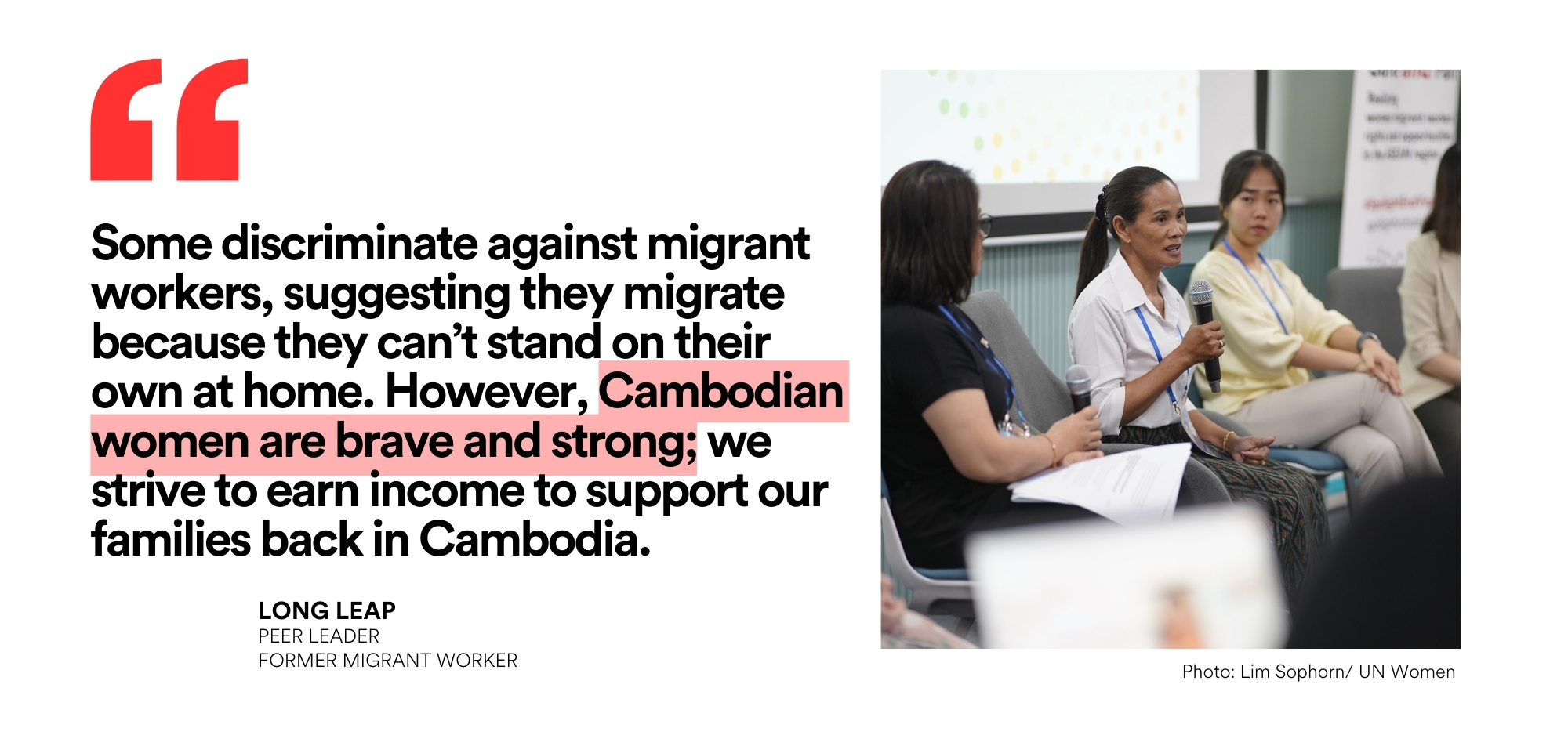
Another panellist, Theang Soriya, feminist columnist and writer, saw the Glossary as having a substantial impact on the media landscape: “Writers have a significant influence over their target audiences, and if, as intermediaries, they lack a clear understanding of how to use words or construct sentences, their writing may have unintended consequences. This glossary presented here provides a standardised set of terms, promoting clarity and avoiding confusion among readers,” she said.
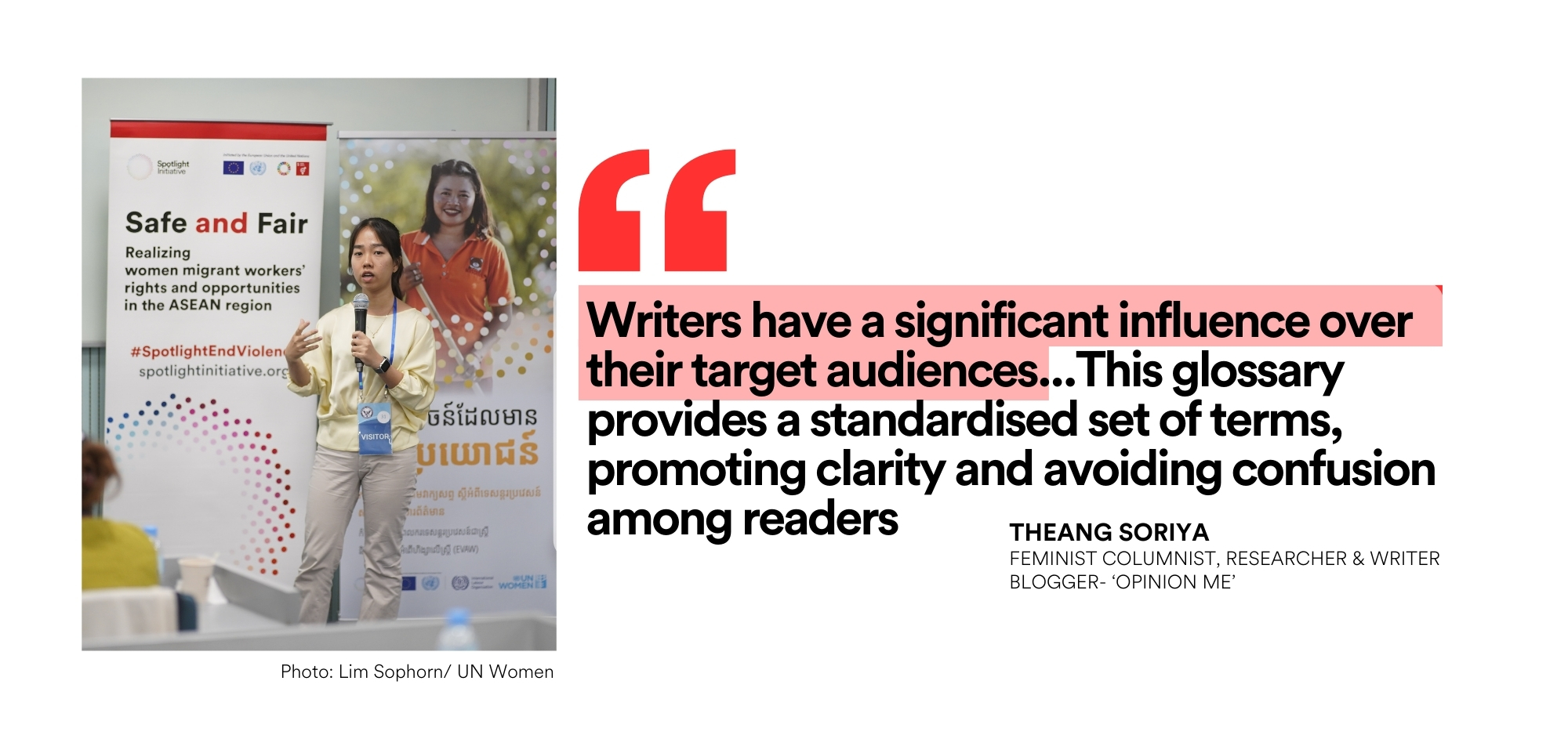
The events were organized within the framework of the 16 Days of Activism, focusing on this year's theme: “UNITE! Invest to prevent violence against women and girls.” Chhay Chhunly, Safe and Fair Programme Manager for Cambodia highlights, "The theme for this year's 16 days is the prevention of violence against women, and language plays a significant role in that effort. When media chooses words and language that challenge stereotypes, and promotes equality, they can influence community attitudes around violence against women, and make the world safer and fairer for women.”
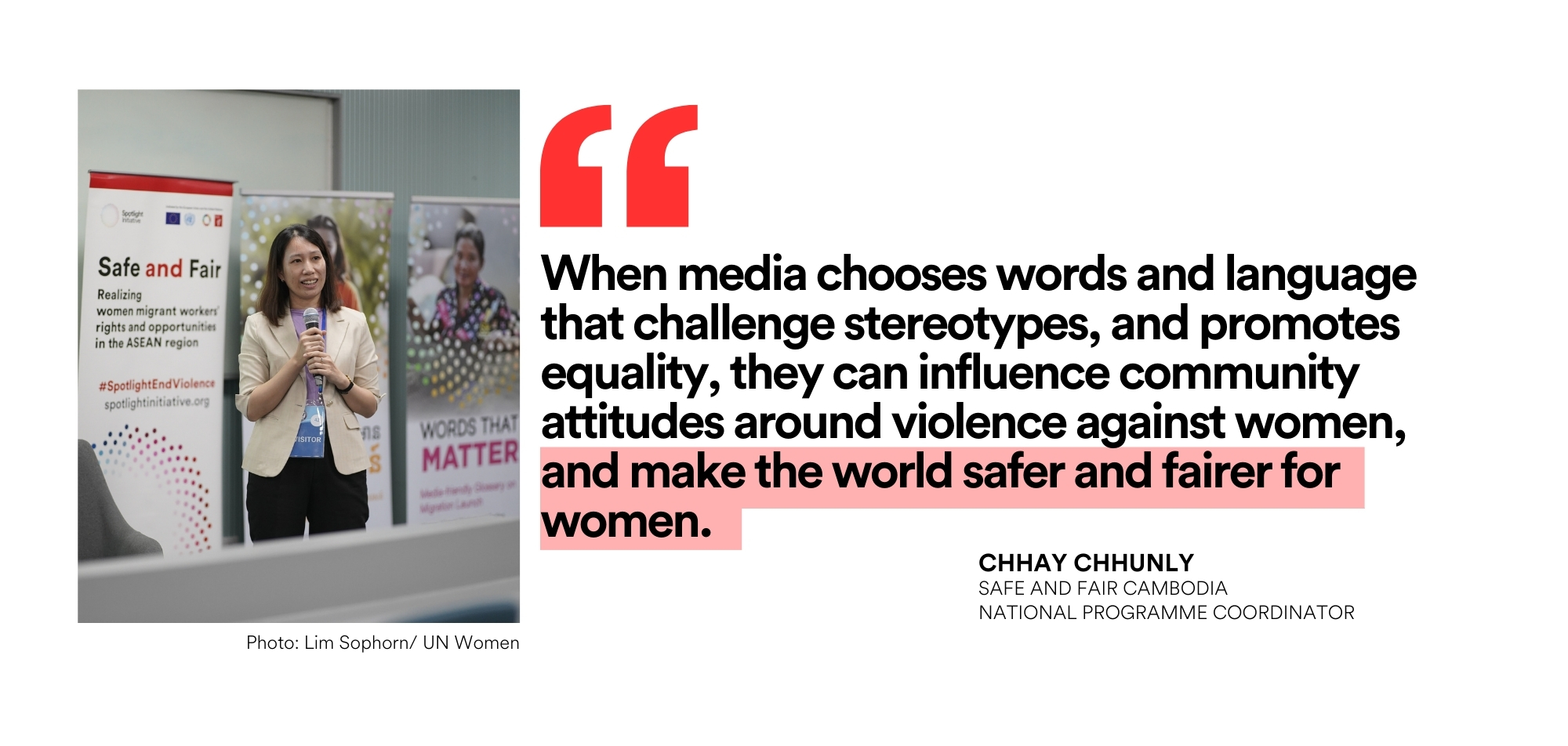
The launch of the Glossary aims to make migration safer and fairer for Cambodian women workers. It starts with students and the media helping to shape a positive the narrative around migrant women workers. As Sarah Rose-Jensen said, “I hope this provides not just AUPP students but everyone with better language to discuss migration. Anything that aids in comprehending migration better and humanising migrants, recognizing their needs and rights, is crucial.”
Khun Sophea hopes that the Glossary will encourage a shift in public perceptions of women migrants across the country. “I hope that this glossary will not only be for news reporters and journalists but also contribute to the public learning and using words that don’t discriminate against women migrant workers. We can then see their (women migrants) power and courage through their contributions to developing the economy of their families and society.”
The Media-friendly Glossary on Migration is available here.
Safe and Fair: Realizing women migrant workers’ rights and opportunities in the ASEAN region (2018-2023) is part of the Spotlight Initiative, a global initiative of the United Nations (UN) and the European Union (EU). Its aim is to eliminate all forms of violence against women and girls. Safe and Fair (SAF) is implemented by ILO and UN Women with the overriding objective of ensuring that labour migration is safe and fair for all women in the ASEAN region.